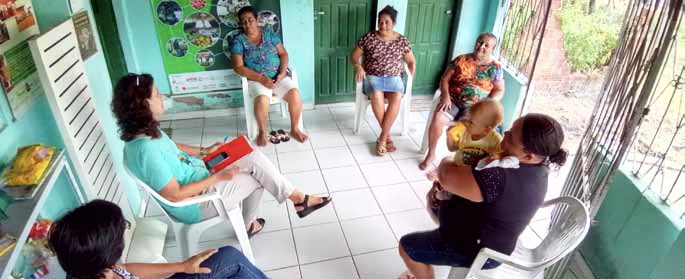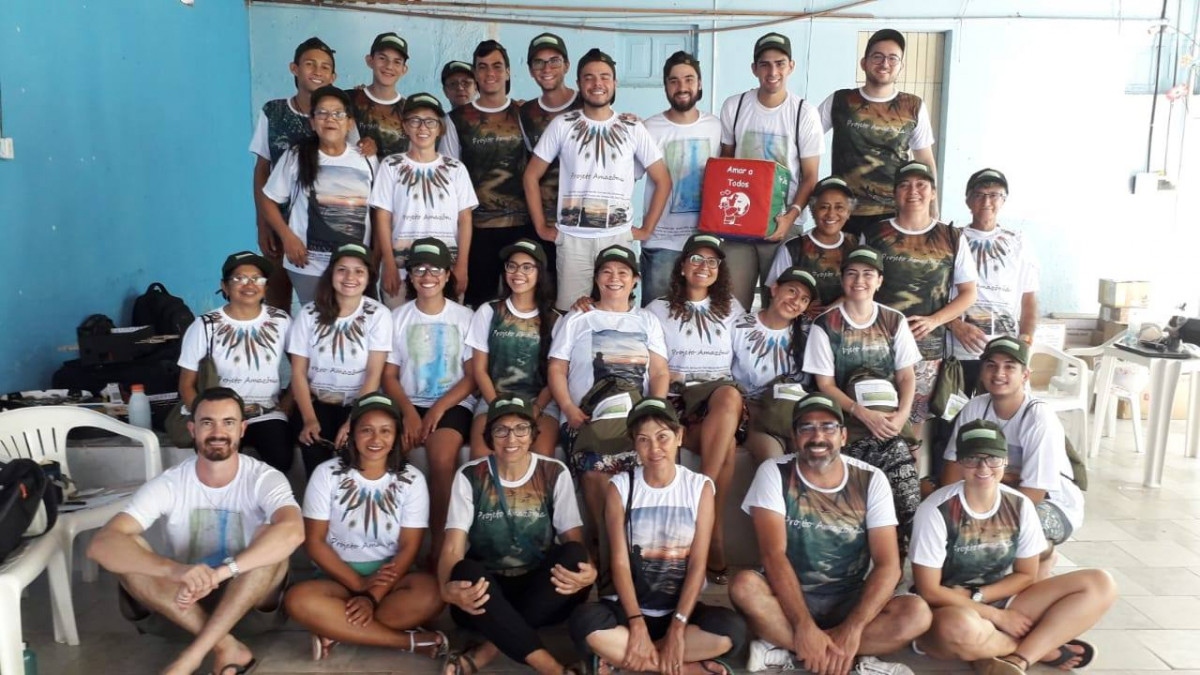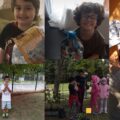
Workshop
Women, cultivators and engaged for the common good

By Gustavo Monteiro – Cidade Nova
AGROECOLOGY. In Brazil, an association of the Zona da Mata Alagoana, puts the women, the cure of the environment and the sense of community at its centre. When Maria Lucilene dos Santos reached the lands that would become the settlements of the Zumbi dos Palmares[1], at Branquinha, in the Zona da Mata Alagiana (Brasil) in 1996, the landscape was quite desolated. The land had long become infertile due to centuries of the sugarcane monoculture.
A good dose of patience and lot of work was what was necessary to plant, obtain a harvest and build a place in which to live in. Little by little, different people, associations and organizations expressed their availability to help. Though many would give up as they encountered their first difficulties, others had ulterior motives or would try to pocket the proceeds of the agricultural activity, or still they would distribute it only among the men. The buyers, for example, would often buy the products but not pay for them.
“‘The women should stay at home and take care of their children’, this is what we would hear them say”, Lucilene, today president of the Agro – ecological Producers of the Zona da Mata Algoana (Aproagro) Association, reminds us. The association counts 17 active members and is also present in other three settlements of the region. Thanks to the Aproagro work, the community of the settlements has received the first certificate of biological production and family agriculture of the Alagoas state.
As a result of this acknowledgment, the producers have also received a truck to sell their products, from the federal government, that has allowed them to participate in different biological markets of the region and the capital, Maceió at 70kms from the settlement.
This and many other achievements are the fruits of the sweat of men and women of the community and of the partnerships entered in the course of these years with the civil society. At the base of everything, then, there are the sincere human relationships.

UNITED WORLD AND FEET IN THE MUD
When Cristina Lira arrived at the Zumbi dos Palmares settlement for her degree thesis project, in the year 2000, she wasn’t able to capacitate of how an area of fertile soil, covered by the Atlantic rainforest and regularly wet by the rains could accommodate one of the poorest municipality of the country.
Her formation as an architect – urbanist allowed her to aim on a sustainable and humane development to combat poverty through the Economy of Communion. “When it would rain we wouldn’t be able to reach the settlement by car. The other university scholars and myself would have to carry on by foot, in the mud. Once, while we were walking, I even lost a shoe”, Cristina remembers.
Despite her determination in helping the community, the researcher was still seen with distrust by the inhabitants. “I did not trust her when she first arrived. I thought that she would be like one of the many other people who came here and then abandoned us. When I saw her coming day after day, with the sun or in the rain, even if she didn’t know how to walk in the mud, I then understood that it would have been different”, Lucilene narrates. “From then, she is the one who builds the bridges. She builds them and we cross them”, she continues, referring to the many dreams become reality.
During the last meeting before her graduation, one of the community leaders asked Cristina: “But now, you’re leaving us?” Mother of four children, the architect felt that experience as a fifth pregnancy: she couldn’t abandon those people, even though alone, she couldn’t have done much. So, it was necessary to create partnerships.
A year later or so, Cristina co – founded the Mundo Unito Institute, that accompanied the community in the relations with the institutions, the non-governmental organizations and companies. Apart from obtaining the truck for the sales and the certificate of biological and family production, the Mundo Unito institute and the Aproagro have also initiated formation courses for the youth, crafts courses, entrepreneurship courses, dental assistance and general medicine projects and education for peace for the children.
“THE WOMAN WHO GOES AROUND DOESN’T HAVE A GOOD REPUTATION”
Cristina narrates to us that every time she visits the settlement, she does it with the intent to serve, make herself available and “make family”. This atmosphere of family, is precisely the secret to the progress made. “If we receive some resources, we give priority to the necessities of the others. We consider those who already have a water tank, and for example, draw the money to those who do not have one. We do not keep anything for ourselves. The money that remains is invested for the headquarters of the association”, Lucilene explains.
Silvaniede Mota is the treasurer of the Aproagro who manages the meticulous documentation of the expenses for the monthly and annual accountability, together with the authorities, the commitment that has assured the continuation of some projects. “At times its exhausting. I do not have a moment free throughout the entire day. If I’m not at the association I’m in church or at the market, or at home taking care of my plants and the animals”, she narrates. Lucilene says: “We have never thought of giving up. We are building a better world for those who will come, even though we might not see the results of our efforts.” “We do not stop, it’s this that fuels the prejudices and the masculinity. ‘The women who goes around doesn’t have a good reputation’, is what they say. But we do not do anything for ourselves. Everything we do, we do for the good of the community”, she concludes.
THE STRENGHT TO MOVE FORWARD
Till today the challenges are many: a good part of the lots of the settlement, for example, has not joined the association and its members decrease. But Silvaniede is not discouraged. “There days when I go back home without having had lunch, after having rushed to the bank then to the church and from the church to the plantation. I get a headache and think about complaining to God. In those moments I look at my garden, I see the hens, the sheep, everything that gives me sustenance, everything that my husband and myself have accomplished. What more should I complain about? I close my eyes and thank God for everything. Then, I ask the strength to be able to do even more.”
[1] An “agrarian settlement”, in Brazil is a group of agricultural units created by the INCRA (National Institute for Colonization and Agrarian Reform) on a rural property.
Each of these units, called plots or lots, is destined to an agricultural family or a rural worker who doesn’t find himself in the economic conditions to purchase a rural property.
The beneficiary family has to establish itself on the lot and cultivate it, developing various productive activities: (NdT, source: https://www.gov.br/incra/pt-br/assuntos/reforma-agraria/assentamentos).
Source:






